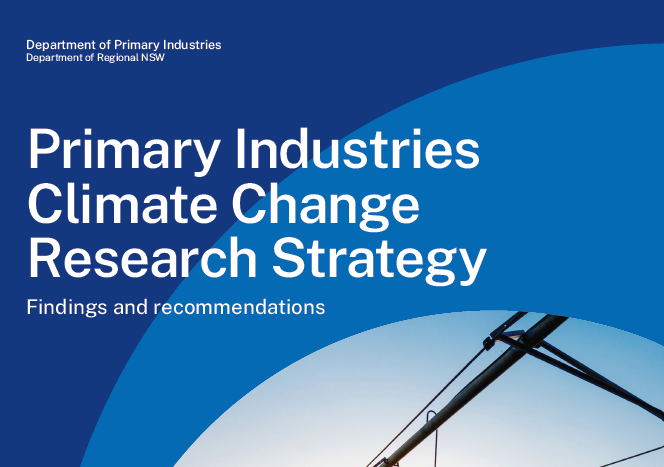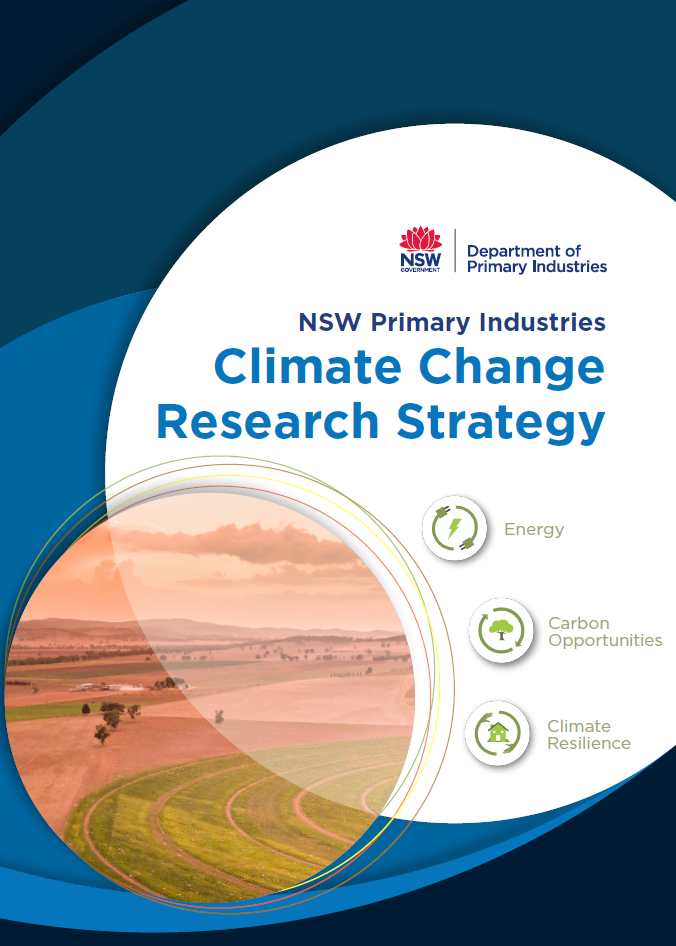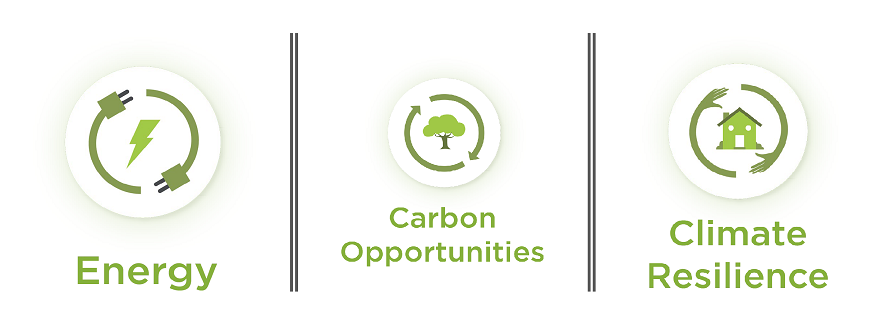Strategy documents
Primary Industries Climate Change Research Strategy
Findings and Recommendations

Primary Industries Climate Change Research Strategy
The Strategy

Research Strategy Projects and theme areas
The Strategy was comprised of 3 main themes:

Energy
Energy was a new area of research for NSW DPI and is divided into 2 key areas of research.
The first key area is energy efficiency and clean energy solutions which is driven by agriculture’s historically poor energy productivity, particularly in energy intensive industries. These 2 projects:
- tackled barriers to uptake of clean energy solutions in agricultural industries
- piloted clean energy and energy efficiency technologies
- provided simple information to help farmers make informed decisions
The second key area of research was in bioenergy (where biomass is used to generate energy). This project:
- trialled native woody species as short-rotation tree crops for biomass production on marginal farmland
- researched the feasibility of biomass as a fuel source for energy generation
- investigated ways of optimising material handling and storage of biomass to improve efficiency and reduce costs;
- carried out technological and economic feasibility assessments of bioenergy;
- developed technological and economic assessment tools for stakeholders; and
- engaged with the broader community to improve understanding of bioenergy and its opportunities.
Carbon Opportunities
The carbon opportunities theme had two projects solving problems with carbon markets from both a policy perspective and from a farmer involvement perspective. Mitigating climate change and sequestering carbon is an important opportunity for primary industries to participate in the global efforts for net zero emissions and to diversify on-farm income.
The Emissions Reduction Pathways project considered all the policy barriers to landholder in carbon markets. It included investigation of livestock, cropping, and farm management opportunities that are currently not well catered for in the Australian Carbon Credit Unit methodologies.
The Accessing Carbon Markets project worked to enable farmers to better engage with carbon markets through information and decision support tools.
Climate Resilience
The projects in this theme worked to understand how primary industries can best adapt to climate change and the new conditions and risks it brings.
The Vulnerability Assessment project identified the risks and opportunities of a changing climate for key commodities and biosecurity risks in NSW. In total, 28 commodities across cropping, extensive livestock, horticulture, viticulture, forestry and fisheries and 14 related biosecurity risks (weeds, pests and diseases) were investigated. Results have provided industry and policy makers with a state-wide assessment of the vulnerability of NSW agriculture to a changing climate and identify adaption strategies that could mitigate identified climate risks.
Climate Smart Pilots is the second project in this theme and it assessed the value of technological support to enhance management decisions in a changing climate. Using a range of digital sensors such as humidity sensors, soil moisture probes, trough and tank level sensors combined with weather stations to provide real-time data to support decision making in the real world. This project also created the Farmer Stories which are a series of case studies illustrating the adaptation activities already being undertaken by farmers across NSW.